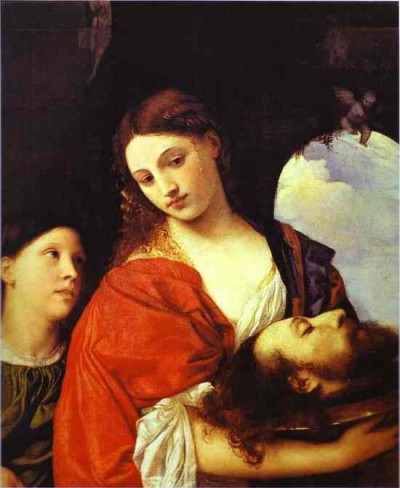
Today, August 29, the Church remembers the martyrdom of John the Baptist. I have always thought that the story that Mark tells us in the sixth chapter of his Gospel (Mk 6:17-29) functions as a parenthesis within the general narrative to describe the worst aspects of the world in which Jesus wants to announce his good news. In the scene, full of details, there is betrayal, hatred, violence, manipulation, vanity, cowardice. In other words, everything that stands against the hopeful message of the prophet of Nazareth. The terrible death of the Baptist is like a warning: Beware! The evangelist tells us: this is the landscape facing Jesus... and all of us.
The most disturbing character in the story is the young dancer—the girl who, without intending to, finds herself at the center of the action. Mark does not name her (he simply presents her as "the daughter of Herodias"). It is Flavius Josephus, in his Antiquities of the Jews, who tells us that the little girl was called Salome (book XVIII, chapter 5,4).
Salome is disturbing because she is innocent and yet becomes the necessary instrument to bring about John's death.
Herodias, her mother, appears as someone without scruples, full of hatred and evil intentions, who from the beginning wants to eliminate the Baptist. She is, so to speak, "the villain," a character without nuances, almost a caricature. Her daughter, on the other hand, is a young woman without bad intentions who simply obeys what she is told: to dance for the king. And, once she has danced and Herod, dazzled, has promised her that he will give her whatever she asks for ("even if it is half my kingdom," he swears foolishly), she runs to ask Herodias what she should ask for. When her mother tells her to ask for John's head, the girl, without thinking twice, instead of refusing to participate in the tragedy, returns to the king and asks for the prophet's life.
None of us are Herodias, but we can all become Salome. That is the reason for the uneasiness that this young character should cause us. We are not perverse like the mother, but we can all, at times, be naive and frivolous like the daughter. Then we could allow ourselves to be manipulated by dark forces that overwhelm us and we could end up being instruments that favor the cause of evil.
Salome is a warning: she cautions us against the danger of falling into superficiality, of sinning by being naive.
The point, of course, is not that we should become distrustful of everyone in an unhealthy manner. The point is that we should never fall into naiveté. When we ignore the power of the hatred that dwells in some people, then it is possible that this hatred may end up taking advantage of our blindness.
We must avoid being like Herodias, but that is not the difficult part. What is truly hard is never to be like Salome either.









